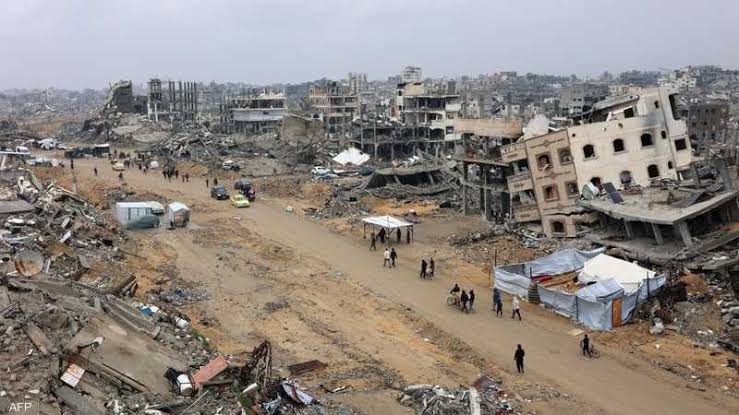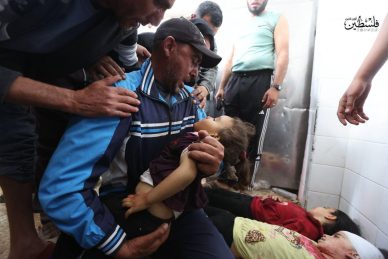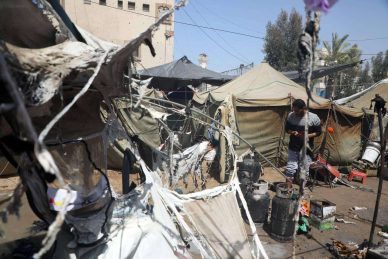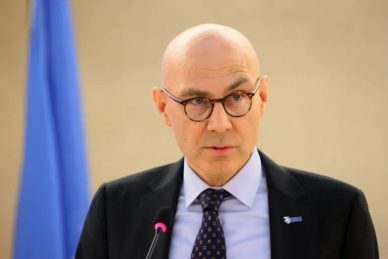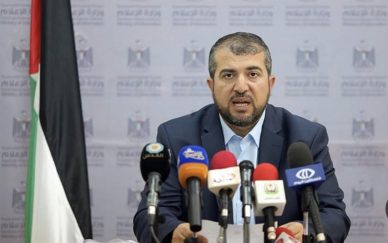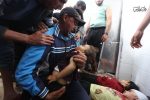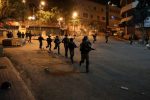GAZA, (PIC)
While the world witnesses the Israeli occupation’s hesitance in implementing the humanitarian protocol stipulated in the ceasefire agreement, the suffering of Gazans intensifies, and their pain worsens, following the criminal Zionist war that has lasted for over 15 continuous months.
It is true that the bloodshed and killing have stopped, but Gazans, after the ceasefire, are experiencing other wars that the Israeli occupation is launching against them mercilessly and without deterrence. This has peaked with the region entering a state of atmospheric instability and successive depressions, revealing the inadequacies of the tents that have become the only refuge for hundreds of thousands of families in the Gaza Strip.
The Hamas Movement has warned, in numerous statements and press releases, through many of its officials and spokespersons, about the consequences of the continued Israeli occupation’s violation of the ceasefire agreement, particularly regarding what is known as the “humanitarian protocol.”
Last Friday, Hamas spokesperson Abdul-Latif al-Qanou said that the occupation is still procrastinating in implementing the “humanitarian protocol,” especially regarding shelter, tents, debris removal equipment, fuel, and restoration needs. He indicated that his Movement has urged mediators to intensify their efforts and pressure the occupation to comply with the “humanitarian protocol,” affirming Hamas’s commitment to the ceasefire agreement to serve the interests of the Palestinian people.
The agreement and reality: A vast chasm
The agreement stipulates that the occupation should allow 600 trucks of aid daily, including 50 fuel trucks, provide shelter necessities by supplying 60,000 mobile units and 200,000 tents, and allow the entry of generators and spare parts, solar panels and batteries, reconstruction materials, as well as debris removal equipment and rehabilitation of health facilities, bakeries, and infrastructure, and facilitate the movement of patients and the injured through the Rafah crossing.
According to data published by the Government Media Office (GMO), during the first 20 days of the agreement, instead of allowing 12,000 trucks of aid, only 8,500 trucks were allowed, of which 2,916 reached northern Gaza instead of the expected 6,000. Most of the trucks that entered carried food and secondary goods, while the Gaza Strip suffers from a severe shortage of shelter and reconstruction necessities.
The GMO stated that the occupation, which was supposed to allow 200,000 tents and 60,000 caravans, has only allowed 10% of the tents and no caravans at all, leaving thousands of families facing the harsh winter without adequate shelter.
Regarding fuel and electricity, instead of allowing 50 fuel trucks daily, the occupation is actually allowing only 15 trucks, exacerbating the electricity crisis and leading to widespread paralysis in the functioning of hospitals and service sectors.
According to official data, the occupation has continued to prevent the entry of medical devices and field hospitals, refusing to allow the evacuation of the wounded and sick, leading to the death of 100 sick children and 40% of kidney patients due to the cessation of dialysis sessions.
Moreover, the occupation has obstructed the entry of heavy equipment necessary to remove 55 million tons of rubble, hindering the retrieval of the martyrs’ bodies, opening streets, and clearing debris.
A tragedy beyond numbers
No numerical language can describe the plight of people living in tattered tents unfit for habitation, especially while facing harsh weather conditions that have struck Gaza in recent days.
“Abu Khalil,” a resident of Gaza City, had his home completely destroyed. During the war, he worked on preparing tents for the displaced due to his skill in arranging and coordinating them well. However, despite his expertise, he fell victim to the recent weather depression.
“The tents available to people today cannot withstand these stormy conditions. Most of them are worn out and unfit for living, compounded by their weak anchoring due to the length of time they’ve been set up and the lack of new tents, along with the necessities many tents require to renew and better arrange them to face the current weather conditions,” says Abu Khalil.
In recent days, Abu Khalil has received hundreds of calls from acquaintances and clients asking him to come and rehabilitate their tents, but the reality that leaves him helpless is the lack of what these tents need to be rehabilitated and arranged, despite the ceasefire agreement being in effect for over 20 days.
Abu Khalil affirms that the situation of the people and the displaced has not changed but has worsened since the ceasefire took effect, “True, killing has stopped and the war is no longer ongoing, but other wars have been waged by the occupation against the people, especially regarding their shelter and livelihood, particularly under the difficult weather conditions they are experiencing.”
The crime of genocide continues
The Euro-Mediterranean Human Rights Monitor believes that the current Israeli policies in the Gaza Strip constitute a crime of genocide that requires urgent international action to save the Palestinians from these deadly policies and forced displacement.
In press statements, it confirmed that the occupation imposes catastrophic living conditions on Palestinians in Gaza, threatening their lives and undermining their essential means of existence.
It noted that the crime of the occupation hasn’t been limited to the widespread killing and significant destruction witnessed in the Strip for over 15 months, but it has continued to implement policies that lead to the gradual death of civilians through slow killing.
The Monitor explained that hundreds of patients and injured individuals in Gaza face the risk of death due to their deprivation of travel for treatment, with only a few allowed to leave the Strip since the ceasefire.
It pointed out that the occupying state continues to prevent the rebuilding of destroyed hospitals, prohibits the entry of essential medical equipment and medications, and blocks the entry of construction materials and necessary supplies for sheltering refugees who have lost their homes.
The Euro-Mediterranean also indicated that Israeli restrictions also include preventing the rehabilitation of water and sewage networks, further complicating the health and environmental situation in the enclave.
In summary, without alteration, while the war in its apparent sense may have ceased, the occupation is still igniting other wars, turning Palestinian life into a hell that may seem unbearable to others, but for the Palestinian, it feels like paradise. For he who raised his voice in chanting and singing for the homeland, saying, “Even your fire is paradise,” was not merely a slogan but a way of life that creates a resilience that astonishes the world and continues to do so.

